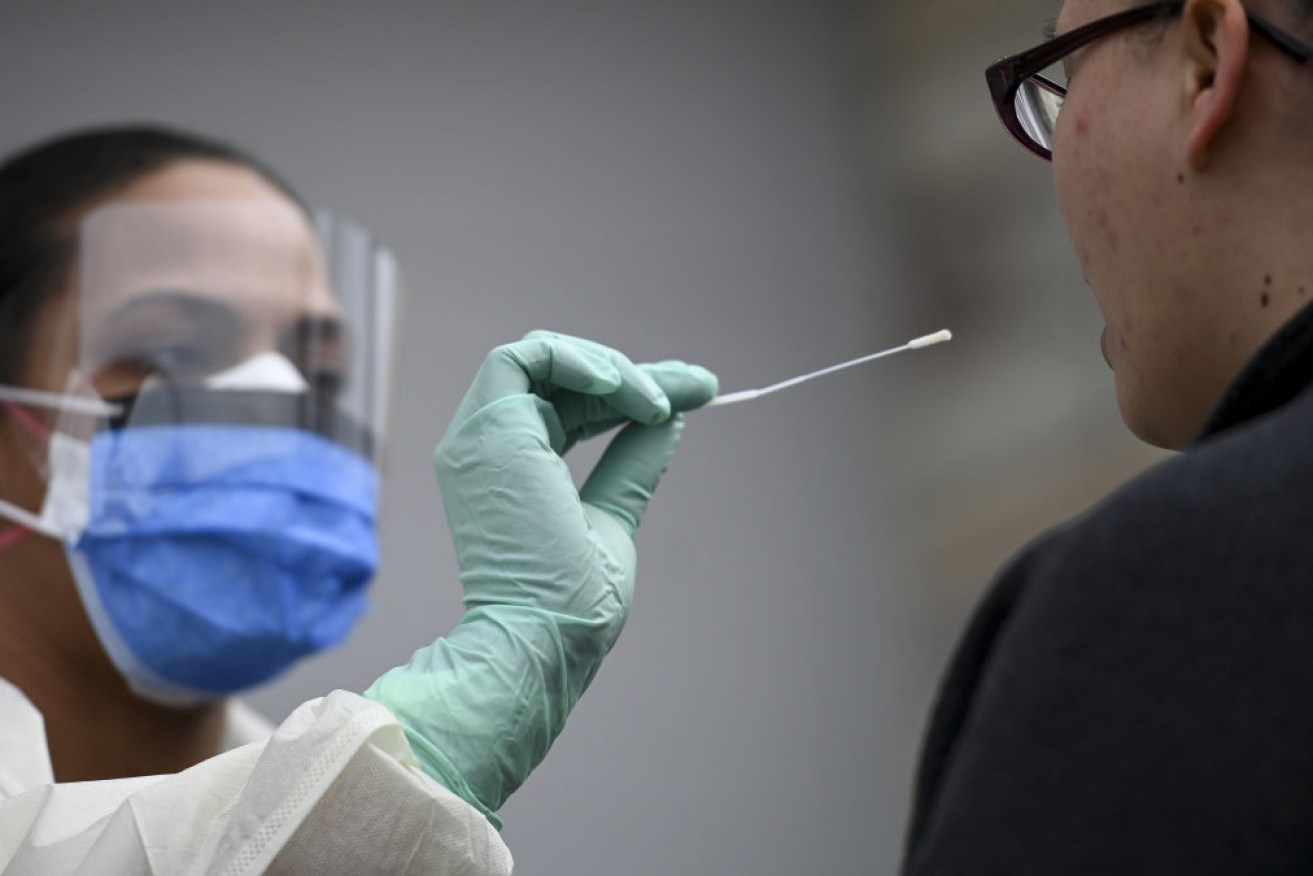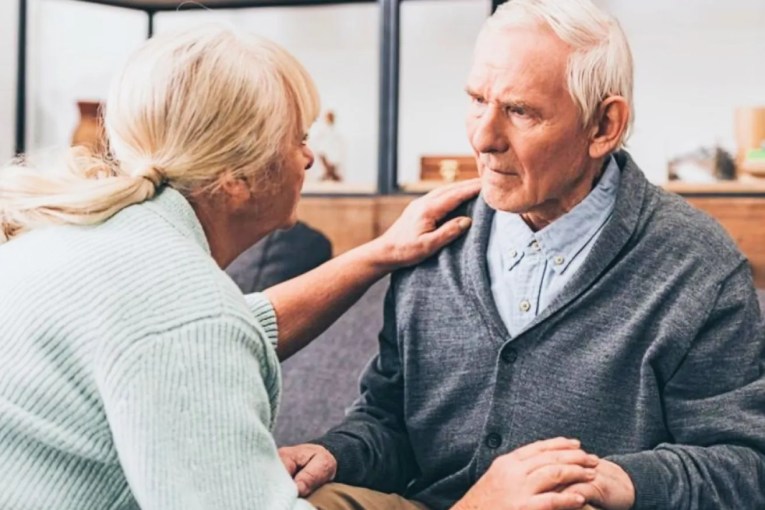Coronavirus testing explained: Think you’ve got COVID-19? Here’s what you need to know


COVID-19 testing has been strictly limited in Australia. Photo: Getty
With the number of people testing positive for the coronavirus continuing to rise in Australia, many people experiencing symptoms associated with the illness are beginning to wonder whether they need to be tested.
Unfortunately, getting tested for the coronavirus is not as simple as it would be under ordinary circumstances.
This is because right now, supply of COVID-19 tests in Australia and many countries around the world, is far outstripped by demand.
To conserve Australia’s remaining test kits, health authorities have chosen to strictly limit testing for the virus to individuals that meet certain criteria.
Namely, returned travellers and members of the public who have come into direct contact with someone who has already tested positive for the coronavirus, and patients admitted to hospital with respiratory illness.
In a letter to doctors on Friday, Australia’s chief medical officer Brendan Murphy said that some parts of the country had run out of test kits altogether.
The situation regarding pathology test kits, reagents and swabs is deteriorating rapidly, with kits no longer being available in some regions of the country,’’ Professor Murphy said.
“Pathology collection centres have also experienced large backlogs in testing appointments in some parts of Australia, and emergency testing facilities have had to be established in some areas to ensure that urgent patients can get access to testing.”
Professor Murphy called on GPs to “strictly” apply the Communicable Diseases Network Australia National Guidelines “in deciding whether to refer a patient for a COVID-19 pathology test”.
“The guidelines have been endorsed by the Australian Health Protection Principal Committee and recommend testing only where a patient meets both the current epidemiological and clinical criteria for testing,” he said.
Health authorities have also been taking steps to shore up the nation’s supply of tests.
On Monday, The Guardian reported that one of the world’s biggest suppliers of tests was about to rush new rapid testing kits to Australia.
Multination medical supplier Roche said it had rushed to develop the test, which can be turned around in just three hours as opposed to the current tests that can take up to three days, to support “the urgent need for patient testing during the novel coronavirus pandemic”.
A total of 100,000 test kits – including rapid tests and older-style tests – have been sent to Australia and are expected to begin arriving on Wednesday, Roche said.
However, tensions are beginning to flare at coronavirus clinics.
On Tuesday, the Sydney Morning Herald reported that clinics have been inundated with “anxious people” demanding tests despite having no symptoms, or seeking an all clear to return to work.
If you have been refused a coronavirus test, consider this: testing is important, but it is not a treatment, it will not change whether you get sicker or better. What WILL make a difference to all of us is if you self-isolate and behave like you did get a positive test.
— Lisa Pryor (@pryorlisa) March 16, 2020
Testing clinic staff have also found themselves on the receiving end of aggression and verbal abuse from people fed up with long waiting times or confused about their testing eligibility, the SMH said.
NSW chief health officer Kerry Chant said the state’s testing services had been “swamped with testing that is low value, low yield”.
It is important that we keep the testing for those people who have symptoms that are at high risk of the disease,’’ Dr Chant said.
Coronavirus testing
Symptoms and when to get tested
Symptoms include fever, coughing, sore throat, fatigue, and shortness of breath.
If you have serious symptoms such as difficulty breathing, call 000 for urgent medical help.
Identify the symptoms of coronavirus and how they compare to the common cold and influenza. Read more: https://t.co/ZSKUE9qo1B #COVID19 pic.twitter.com/njHhZCiHvd
— Australian Government Department of Health (@healthgovau) March 17, 2020
When to get tested
If you develop symptoms within 14 days of last contact with a confirmed case or of returning to Australia, you should seek medical advice, the Department of Health advises.
It’s important to note that, due to the highly infectious nature of the disease, patients with coronavirus-like symptoms must call their doctor’s office for advice rather than presenting at the clinic.
Your doctor will tell you if you need to get tested.
Due to the shortage of test kits in Australia, only returned travellers and people who have been in direct contact with someone who has tested positive for the virus are currently eligible to be tested for COVID-19.
Coronavirus hotline
If you’re concerned you may be infected or looking for further advice, you can call the Coronavirus Health Information Line for advice on 1800 020 080.
Note that long wait times have been reported.
If you need translating or interpreting services, call 131 450.








